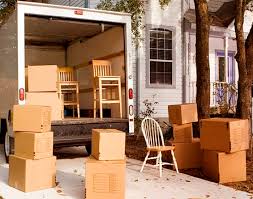How To Choose a Long Distance Moving Company.
After going through different companies, you may be wondering which one to choose. You may want to go for the most affordable option, but sometimes the cheapest option isn’t the best. You may get caught in a moving scam, which is why you need to be careful before hiring.
It is recommended to hire a local company; therefore, you won’t have to deal with movers solely on the internet. Scan your area for long-distance movers and make sure to get written in-home estimates from at least three of them. Also, every long-distance mover should have a license, if the one you’re thinking of hiring does, you should check it.

Know When to Book the Movers Before You Move
The two main factors that determine how difficult it might be to book a mover are where and when. While how much stuff you have to move should also be considered, it won’t prevent you from finding a good mover.
Local Move Within the Same City During Summer
If you’re moving during the summer, book as soon as you can. Ideally, two months before your move date. Worse case, at least four weeks, but know that if you only have a month or less before your move, you’ll have a limited choice of movers. Most good movers are booked two to three months out.
Local Move Within the Same City Off-Season
If you’re not moving in the summer, then you can book anywhere from two to four weeks before your move date. Keep in mind, even during the fall, winter, or spring, good movers will book up so always try to give as much notice as possible.
Move to Another City Within the Same State During Summer
Intrastate moves—moves that are within the same state—are less complicated than out of state moves, so booking movers 10 to 12 weeks before you move is sufficient. Because there are fewer movers who will move to another city in the same state, you should allow at least two to three months, especially if moving in the summer.
Move to Another City Within the Same State Off-Season
For an intrastate move that isn’t happening during summer, you can get away with booking four to eight weeks before the move date with two months being the ideal amount of time needed.

Is It Weird to Help Your Movers? 5 Things Movers Absolutely Love
To help move your move along, I can say from experience that these 5 areas are the best, most useful things you can do ahead of your Hybrid move. Of course, most movers will be happy to do the things on this list for you, but do everyone a favor – yourself included – and consider being mover ready if you’re looking to save the absolute most amount of money. I’ll tell them it was your idea.
1. Disconnect and unplug as many electronics, lamps, and appliances as possible
See all those cords and wires back there on the floor behind the TV stand? That dusty tangle of connections for your DVD player, Xbox and iPod portal? Nice, huh? Your movers, of course, would be happy to get down on their hands and knees and spend half an hour disconnecting that mess…but is that really what you want to be paying them for?
Tip: Make things easy on yourself at the other end of your move by labeling or otherwise organizing all those cords. Put them in Ziploc bags, or simply wrap them in newspaper and label them with a big, fat marker.
2. Get everything off of every single wall
Yes, you are already off-the-wall crazy with everything you have to do (har har). But this can be done little-by-little in five or ten second increments weeks ahead of your move.
It’s this simple: when you walk past any picture, take it down. Place it right there against the wall on the floor. Better yet, find some out-of-the-way wall space where you can lean ALL your pictures, paintings, clocks and mirrors. Do the same with all your smaller picture frames from the side tables and shelves. You’ll have saved your movers a lot of precious time.
Tip: Keep a small bag for all those nails and hanger things – you’ll want them when it’s time to start decorating your new home.
3. Strip your mattress and fold your bedding
Instantly make your bed move-ready by stripping the mattress and folding up all your bedding ahead of your move. If the movers are packing you up, they’ll only have to stick those blankets, pillows and sheets inside a box. If you are doing your own packing, then have a box ready by your bed so that you can get one box packed before you’re even out of your pajamas.
4. Take the front wheels off your bicycles
Got a bicycle? Or a few? Consider removing the front wheels. Bicycles don’t fit into a loaded truck so readily with the handlebars sticking out on both sides. Bikes are also usually among the last items to be loaded onto the truck, when there’s often not a lot of space.
If you are inexperienced you may risk damaging your bike, so be gentle with your two-wheeled buddy. Flip that lever, open the brake caliper and slip that front wheel off. YouTube is your friend.
Tip: Keep that wheel with the rest of the bike – you’ll need it later. Sounds facetious but we’ve seen that front wheel get set aside for last and then end up forgotten – almost…
Tip #2: Your rear derailleur is both fragile and expensive. Protect it by shifting the chain onto the largest sprocket. This keeps it closer to the wheel for an extra ounce of protection against getting bent or broken.
5. Make a space for anything you don’t want them to touch
In preparing for your move you’ll find a whole host of items you’ll want to keep on hand: phone, charger, maps, stuff to mail, bathroom junk, cigarette lighter…you get the idea. You might want to designate a place for all the stuff you don’t want packed or moved. A kitchen counter is usually a good choice – push all that stuff into a marked box, or in a pile against the wall where there will also likely be an outlet to keep your gadgets charged.

QUESTIONS TO ASK YOUR MOVERS
When you’re about to move to a new home, and you want professional help to make it happen. You want more than just a truck rental that comes with some strong laborers. You want strategic, experienced movers who can execute the process efficiently.
The relationship you form with your movers may not be long-lasting, but it is important. You’re going to share part of a life-changing experience with these guys and you need to count on them to have your back.
However, unless you’re an employer, chances are you have little experience with the hiring process, much less the interview process. It’s possible that the only question you’re prepared to ask your mover is, “Hi, how are you?” It may be a start of a good relationship, but it doesn’t really do much to inform you about how qualified these guys are. It’s vital to know what questions you should be asking in order to determine whether or not these movers are a good fit for your job.
Luckily, we have a few questions that might come in handy when you want to find the right team for your move, and we’re not opposed to sharing. Here are a few that you may want to ask your mover.
1. Do the movers have references for their services?
References are the equivalent of customer reviews for the moving company. They come from non-biased sources who are looking for pretty much the same things from a company that you are looking for yourself, and you’re likely to get more of a relatable and down- to- earth story from reading them. Ask your company if they can provide online testimonials from past customers or look for reviews yourself if you feel they are more trustworthy.
2. Do the movers charge any additional fees?
Ah, those little “read between the lines” fees that you don’t know about until you end up paying for them. Sometimes companies charge extra for hard-to-handle items or if the building you’re moving from or to isn’t easy to access. Ask about fuel or distance surcharges as well. You don’t want to be slapped with a bigger bill than the one you were expecting.
3. What’s your rate and how is it determined?
Most companies charge a rate based on weight and distance and take it as a red flag if they charge you by cubic feet. If you’re moving long distance, rates must depend on poundage. For shorter distances, an hourly rate may apply. Make certain to get an estimate in writing including all costs you and your movers will be responsible for, and be sure that it is signed by both parties.
4. What does the movers’ insurance policy cover?
When people move delicate and heavy objects by themselves across long distances, stuff happens. Moving is an injury prone line of work, and when an employee drops your wedding china tripping over a box, you want to know who’s picking up the tab. Find out about the company’s insurance policies for property damage, injury, and commercial auto to make sure you won’t be left high and dry if the unexpected happens.
5. What packing services are available?
They don’t call them precious belongings for no reason. If you’ve got some, you may want to ask a few questions on how they’re going to be protected and labeled. Some companies include these services in the cost, others charge extra. Get a line on how your company works and also how your items will be labeled. You may be expected to take care of appliance service charges if the mover needs to disconnect and reconnect the appliances.
Types of moving estimates
- Binding moving estimate: If the mover gives you a binding estimate, they’re required to honor the price they provide you as long as nothing changes. If you only move the items listed on the inventory sheet, the final price should match what appears on the binding estimate.
- Non-binding moving estimate: A non-binding estimate is merely a document with the mover’s best guess of your moving cost. The final price is determined by the weight of your shipment and the services provided. Although the actual bill may go much higher than the non-binding estimate, your mover can only require you to pay 110 percent of the written estimate at the time of delivery. You’ll be billed for any remaining charges later.
- Binding-not-to-exceed moving estimate: A binding-not-to-exceed estimate is the same as a binding estimate except that you’ll pay less than the quoted price if your items weigh less than what’s estimated.